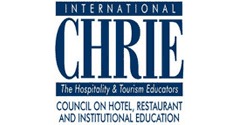
Day 1 - Wednesday, 29 July 2009
Information
The present study investigates the distal effects of front-line employees' work-family conflict on customer satisfaction. Based on data from 200 paired employee-customer interactions at six hotels, a Structural Equation Modeling was conducted to test the hypothesized model and the results supported most of our predictions. Specifically, participants' FIW (family interfering with work) was positively linked to physical, emotional, and mental exhaustion, while WIF (work interfering with family) did not have such associations. Further, individuals with higher levels of physical exhaustion were more likely to manage their emotions by faking positive emotions and suppressing negative emotions, whereas participants with higher levels of emotional exhaustion were more likely to fake positive emotions. Although faking positive emotions enhances the employee's role performance, such actions failed to enhance customer satisfaction. The current research extends our knowledge of work-family conflict on employee-customer interactions and suggests that hospitality organizations need to be aware of the critical effects of employees' family affairs on work behaviors and ultimately on customer satisfaction.
Start Date
29-7-2009 4:30 PM
End Date
7-29-2009 5:30 PM
wf_yes
An Investigation of the Effects of Front-Line Employees' Work-Family Conflict on Customer Satisfaction through Exhaustion and Emotional Displays
The present study investigates the distal effects of front-line employees' work-family conflict on customer satisfaction. Based on data from 200 paired employee-customer interactions at six hotels, a Structural Equation Modeling was conducted to test the hypothesized model and the results supported most of our predictions. Specifically, participants' FIW (family interfering with work) was positively linked to physical, emotional, and mental exhaustion, while WIF (work interfering with family) did not have such associations. Further, individuals with higher levels of physical exhaustion were more likely to manage their emotions by faking positive emotions and suppressing negative emotions, whereas participants with higher levels of emotional exhaustion were more likely to fake positive emotions. Although faking positive emotions enhances the employee's role performance, such actions failed to enhance customer satisfaction. The current research extends our knowledge of work-family conflict on employee-customer interactions and suggests that hospitality organizations need to be aware of the critical effects of employees' family affairs on work behaviors and ultimately on customer satisfaction.